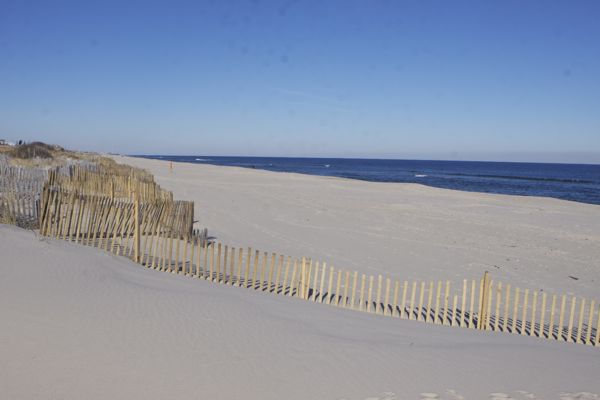DEP’s Version of Arrogant “Sit Down and Shut Up” Approach To Governing
Direct Contradiction of NOAA Policy
Hugely controversial public debates about the future of the ocean and NJ’s coastal zone management – from Hurricane Sandy rebuilding, to threats from climate change, sea level rise and storms, to over-fishing, pollution, and off shore LNG, oil & gas drilling, and energy development – are proliferating.
Yet, remarkably, just when the public is demanding more transparent and participatory planning and government, the Christie DEP is closing down and limiting public opportunity to participate in that debate.
We have written here numerous times about various individual coastal and ocean issues, so I won’t go into them here.
The point is, DEP is responsible for planning, regulation, and management of a myriad of critical coastal zone resources and near ocean waters.
Under federal law, DEP is required to prepare submit a coastal zone management assessment every 2 years and a coastal strategy every 5 years.
Improvements to state and territory coastal management programs are encouraged through this program. The focus is on nine enhancement areas: wetlands, coastal hazards, public access, marine debris, cumulative and secondary impacts, special area management plans, ocean and Great Lakes resources, energy and government facility siting, and aquaculture. The program was established in 1990 under Section 309 of the Coastal Zone Management Act.
Every five years states and territories review their programs to identify priority needs and opportunities for improvement. The programs then work with NOAA to develop multi-year improvement strategies that focus on one or more of the priority enhancement goals.
On Thursday Feb. 12, DEP will hold a one time “by invitation only” “Stakeholders” meeting in Trenton to develop NJ’s coastal strategy and plan.
Did you get that? “BY invitation only!”
At a minimum, given the recent dispute on sea walls, I figured the folks in Mantoloking would want to ask a few questions or relay their concerns – but DEP didn’t invite them!
Here are the federal NOAA Guidelines on how DEP is supposed to allow the public to participate on coastal planning:
E. Public Review
Because the CZMA places a strong emphasis on public participation, CMPs must provide opportunities for public review and comment on the Assessment and Strategy. Since OCRM is encouraging a combined Assessment and Strategy, CMPs may hold the public review period concurrently with OCRM’s review of the draft submission. The public review process does not require formal public hearings and may occur through a variety of means, e.g., public comment websites, advisory committees, Commission meetings, or informal public workshops. At a minimum, CMPs should provide adequate public notice, document availability, and a minimum 30-day public comment period. CMPs are encouraged to use the Internet, as feasible, to make the document widely available for public comments. A summary of public comments and responses must be included with the final Assessment and Strategy.
Does one meeting, by invitation only, satisfy a “strong emphasis on public participation”?
We don’t think so and are appealing to NOAA about that right now.
[ImportantEnd Note: It is more than ironic that, in contrast to the closed door at the Christie DEP, NOAA’s most recent assessment on NJ’s Coastal Management Program – from 2004 – 2007- touted this:
The evaluation team documented a number of NJCMP accomplishments during this review period. Most notably, the CMO has demonstrated leadership in the development of statewide policies and rules that address current coastal management issues. The Division of Land Use Regulation and the Bureau of Coastal and Land Use Compliance and Enforcement have enhanced permitting and enforcement components of the program. The NJCMP has increased its outreach to coastal communities by collaborating with program partners to offer technical assistance opportunities. Other significant accomplishments during this evaluation period included enhancements to public access policy and outreach, and implementation of the Clean Marina Program.
[…] As mentioned above, the NJCMP has expanded its role in coastal management, and so most recommendations address enhancing Program capacity. Suggestions thus include: increasing communication and integration both within NJCMP and across DEP; reconsidering the allocation of CZMA funding among NJCMP components; and developing strategies for partnerships to address emerging coastal issues and outreach to coastal communities.
That was the path of reform and enhancement NJ DEP was on, until the Christie/Martin disaster derailed all that – a story largely ignored by the cheerleading NJ press corps but thankfully documented in this Huffington Post story, which was written in the wake of Hurricane Sandy, as well as Episode #5 in the documentary “Years of Living Dangerously”.
Watch HuffPo video, where I lay out the problems – the conversation is aptly titled: “Zoned for Destruction”



Pingback: lululemon outlet online
Pingback: FxmhTAqt
Pingback: Nike roshe run gamma grey
Pingback: Cheap Christian Louboutin
Pingback: Christian Louboutin Outlet
Pingback: http://www.kingstonlife.ca/sitepages/pollnews.asp
Pingback: louis vuitton outlet
Pingback: Lululemon canada 2014
Pingback: Lululemon Outlet
Pingback: lululemon outlet
Pingback: lululemon factory outlet online
Pingback: Lululemon Outlet canada
Pingback: http://www.vanitynightclub.com.au/files/
Pingback: fitflop sandals clearance
Pingback: Christian Louboutin Outlet
Pingback: wow gold
Pingback: nike football boots mercurial
Pingback: christian louboutin sale canada
Pingback: birkenstock buy
Pingback: fitflop
Pingback: WolfeNotes.com » Pinelands Commission Moves To Restore Credibility – Signals Intent To Regulate Motorized Vehicle Destruction
Pingback: WolfeNotes.com » Christie DEP Report Outlines Devastating Impacts Of Climate Change On NJ Coast